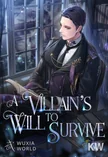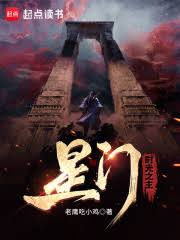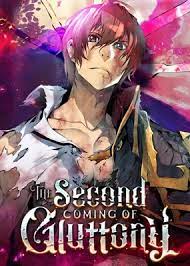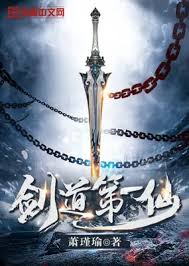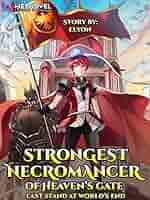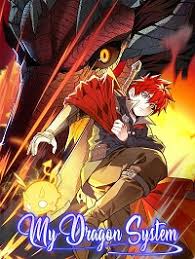The Story in 3 Sentences
Kim Woojin, a game developer, awakens as Deculein von Grahan-Yukline, the arrogant and despised mid-level boss fated to die in nearly every route of the AAA-game he helped create .
Armed with intimate knowledge of the game’s plot and mechanics, he must navigate a world that universally hates him, using cunning, manipulation, and strategic foresight to dismantle the death flags looming over his existence .
His desperate struggle for survival gradually evolves into a complex quest for redemption and power, forcing him to confront his inherited past sins, manage a fractious noble house, and challenge the world’s predetermined destiny .
Why It Stands Out
1. The Meta-Cognitive Villain
Deculein’s greatest weapon is not magical prowess but his developer’s understanding of the game’s underlying logic, allowing him to exploit plot holes, manipulate event triggers, and repurpose game mechanics in brilliantly unconventional ways that transform a simple survival premise into a high-stakes narrative chess match .
2. The Depth of a Flawed Protagonist
The novel excels in its psychological portrait of a man forced to embody a villainous role, exploring the intense internal struggle between Kim Woojin’s modern pragmatism and Deculein’s ingrained aristocratic arrogance, perfectionism, and obsessive-compulsive disorders, creating a protagonist who is both intellectually calculating and emotionally complex .
3. World-Building Through System Integration
The story seamlessly blends hard game-like mechanics, such as status screens and quest objectives, with a deep and immersive fantasy world featuring a detailed magic system, political intrigue, and a long history of familial legacy and imperial conflict, satisfying both readers who love LitRPG elements and those who appreciate traditional epic fantasy .
Characters That Leave a Mark
There’s Yeriel Yukline – Deculein’s fiercely capable younger sister and the true manager of the Yukline household, who possesses a complex mix of resentment, fear, and lingering familial loyalty toward her brother, representing his most personal and emotionally charged link to a past he must atone for .
You’ll meet Sophien Aekater Augus von Jaegus Gifrein, the formidable and unpredictable Empress of the Empire who holds Deculein in a unique regard, often excepting him from her wrath and his own fastidious rules, and whose favor becomes a crucial, double-edged sword in his political survival .
And Rohakan? He’s the legendary wandering wizard and a key Named character whose survival is essential to Deculein’s goals, serving as a mentor figure of immense power and enigmatic motives, often operating on a level that even the meta-aware protagonist cannot fully grasp .
The Flaws Fans Debate
The protagonist’s internal monologue frequently circles back to his central anxiety about preordained death, which some readers feel becomes repetitive and slows the narrative momentum after the initial premise is firmly established .
Several supporting characters, particularly the female leads, are criticized by a segment of the fanbase for lacking development outside of their relationship to Deculein, with some arguing their personalities often revolve around a singular obsession that can feel two-dimensional .
The novel’s final act accelerates toward its conclusion at a notable pace, resolving overarching conflicts with a speed that some fans felt did not match the meticulous and deliberate build-up of the first two-thirds, leading to a sense of rushed resolution for a few plot threads .
Must-Experience Arcs
Ch. 1–50: The Fugitive Count – The tense foundation where Kim Woojin first grapples with his new identity as Deculein, avoids the initial deadly encounters set by the plot, and begins his first audacious manipulations to divert his immediate doomed fate while managing the Yukline household .
Ch. 150–200: The Imperial University Gambit – A critical arc showcasing Deculein’s role as Head Professor, where academic intrigue and magical duels blend with political maneuvering, allowing him to secure key allies and resources while solidifying his public reputation as a strategic genius .
Ch. 300–383: The Final Script – The climactic narrative war where all accumulated strategies and alliances converge in a direct confrontation with the original story’s endgame, culminating in a metaphysical battle to author his own ending and definitively seal his survival .
Killer Quotes
“If you possess a single virtue, it should be that you know yourself. If you possess a single vice, it is that you forget your position.”
“Survival isn’t about being the strongest; it’s about being the last one standing. And for that, you need to be smarter than everyone who fell before you.”
“A villain’s role is to lose. I simply rewrote the script.”
Cultural Impact
The novel sparked widespread discussion on forums about the “Villain Trope” in web novels, with many praising its intelligent subversion of predictable character archetypes and its focus on a protagonist who wins through intellect and strategy rather than pure force .
It developed a dedicated fanbase that created numerous analytical posts and guides dissecting Deculein’s specific strategies for political manipulation and resource management, treating his actions as a detailed case study in pragmatic power acquisition within a narrative framework .
The phrase “rewriting the script” became a popular tag within its community, used to describe any story where a side or villainous character successfully takes control of the narrative away from the intended protagonist, cementing the novel’s influence on the genre .
Final Verdict
Start Here If You Want:
A protagonist who wins through brilliant strategy, meticulous planning, and intellectual manipulation rather than overwhelming power or divine luck, making every victory feel earned through cunning.
A story that expertly blends the paranoid tension of survival with the satisfying, granular progression of managing a noble house and navigating complex political intrigue within a rigid aristocratic system.
A deep psychological exploration of identity and morality, focusing on a character forced to balance his modern sensibilities with the ingrained habits and burdens of a villain’s body and legacy.
Study If You Love:
Intricate plots where the primary tension arises from political maneuvering, economic strategy, and the cerebral management of people and resources within a well-defined fantasy framework.
Stories that use game-like mechanics intelligently, weaving stats and skills organically into the narrative to enhance the world-building without overwhelming it with gratuitous numbers.
Complex character studies where the protagonist is morally grey, pragmatically ruthless, and constantly evolving, offering a departure from traditionally heroic and virtuous leads.
Avoid If You Prefer:
Fast-paced action with frequent large-scale battles; this novel prioritizes cunning plans, dialogue, and political intrigue over visceral and constant combat sequences.
A straightforward and optimistic hero; the protagonist is calculating, often emotionally reserved, and willing to make ruthless decisions that prioritize survival above all else.
A narrative with a vast ensemble cast where every side character receives deep development; the focus remains tightly on the main character’s perspective and his immediate instruments of power and conflict.
